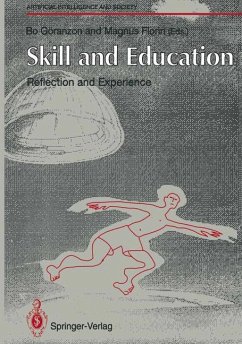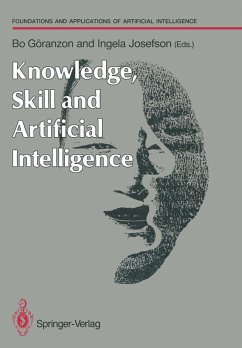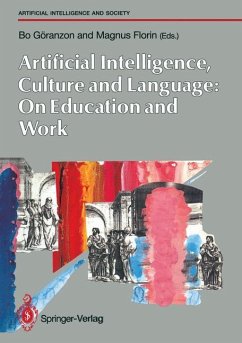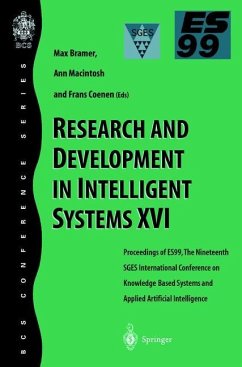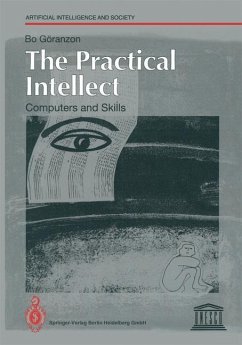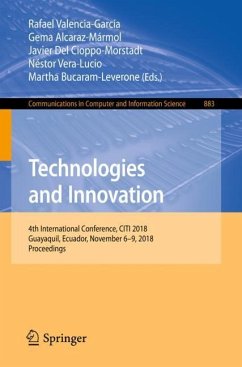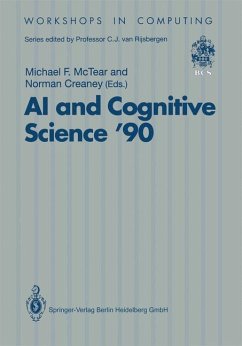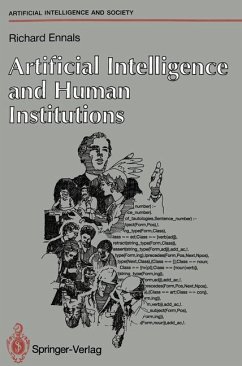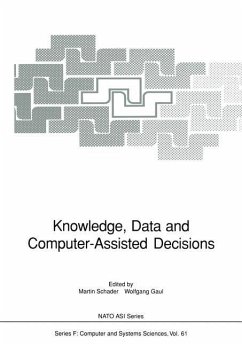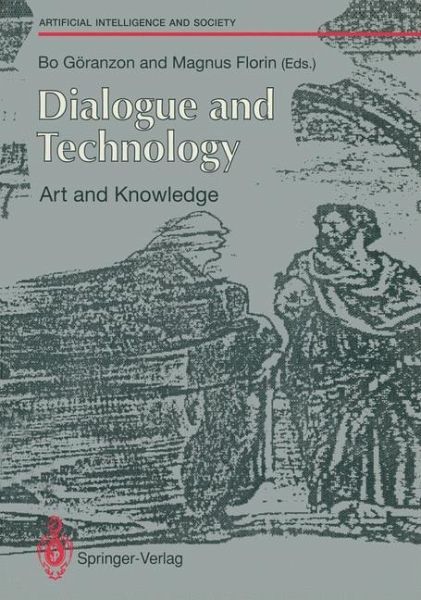
Dialogue and Technology: Art and Knowledge

PAYBACK Punkte
20 °P sammeln!
This volume is based on the Stockholm conference on Culture, Language and Artificial Intelligence, which was organised by the Swedish Arbetslivascentrum in 1988. This conference brought together over three hundred and sixty people interested in the cultural impact of technology, and particularly of AI. The 20 challenging papers contained in this volume were presented, or prepared, at the conference. This book aims to demonstrate the breadth and complexity of the concept of "dialogue", particularly in relation to new technolgy and what follows in its wake: the effects it has on the development ...
This volume is based on the Stockholm conference on Culture, Language and Artificial Intelligence, which was organised by the Swedish Arbetslivascentrum in 1988. This conference brought together over three hundred and sixty people interested in the cultural impact of technology, and particularly of AI. The 20 challenging papers contained in this volume were presented, or prepared, at the conference. This book aims to demonstrate the breadth and complexity of the concept of "dialogue", particularly in relation to new technolgy and what follows in its wake: the effects it has on the development and preservation of occupational knowledge and skills, and its effects on society, culture and language. The philosophical and aesthetic nature of the contributions is due to the influence of the Dialogue Seminar, which was held continuously at the Royal Dramatic Theatre in Stockholm during the conference, and in which several of the contributors to this book participated.





